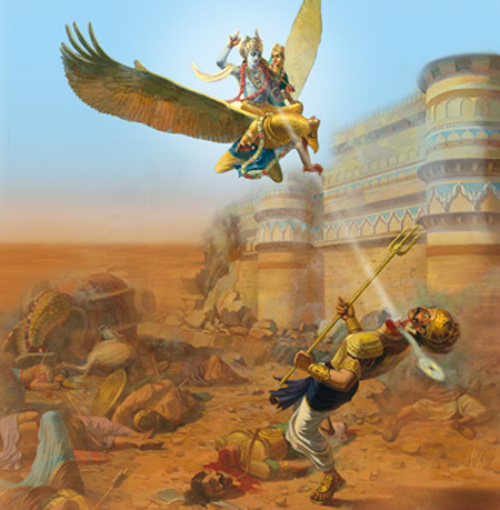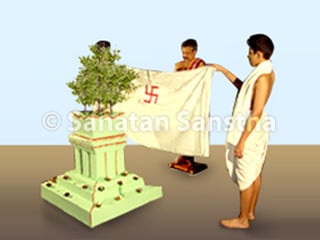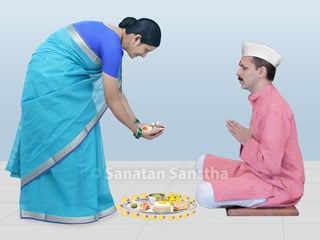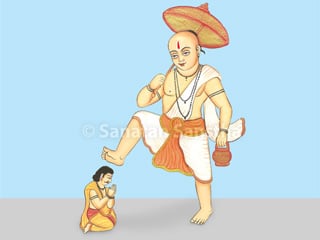Tithi
Ashvin Krushna Chaturdashi (Fourteenth day of the dark fortnight of the month of Ashvin)
History
There is a story in Shrimadbhagvat-Puran as follows – A powerful demon called Bhoumasur (or Narakasur) ruled a place named Pragjyotishpur. He began harassing Deities and people alike. Then this cruel demon began to harass women. He imprisoned sixteen thousand young princesses who he won in battles, and planned to marry them. This created chaos everywhere. When Shrikrushna heard of this, along with Satyabhama He attacked the demon, killed him and set all princesses free. The dying Narakasur asked Shrikrushna for a boon, “On this tithi let one who has a mangalsnan (auspicious bath) not suffer in hell.” Shrikrushna granted him this boon. Consequently, Ashvin Chaturdashi came to be known as Narak Chaturdashi and on this day people started having sabhyang snan before sunrise. When Shrikrushna returned home at dawn after slaying Narakasur, adorning a tilak of Narakasur’s blood on His forehead, Nanda gave Him an auspicious bath. The women expressed their joy by doing His Arti.’

Method of celebrating Narak Chaturdashi
1. Sabhyang snan should be taken at an auspicious time at dawn, when the stars are still visible. Water should be sprinkled from head to toe and back till the head, with a branch of a plant named Aghada (Prickly Chaff Plant). For this purpose, Aghada plant with roots is used.
2. Yamatarpan : After sabhyang snan it is advised that the ritual of Yamatarpan be performed to overcome untimely death. This ritual is explained in the panchang and should be performed accordingly. Thereafter, the mother should perform Arti for her children. Some break karit (a bitter fruit) with their toes to signify the slaying of Narkasur, while some put a drop of the juice onto their tongue, as his blood.
3. At noon, Brahmans are fed and clothes are offered to them.
4. At the time of Pradosh (Pradosh is the dusk of the early night) lamps are offered. He, who has taken undertaken a vrat of Pradosh, performs puja of Pradosh and Deity Shiva.

 How to celebrate Deepawali in adverse times caused by coronavirus pandemic ?
How to celebrate Deepawali in adverse times caused by coronavirus pandemic ? Think whether you commit any inauspicious deeds on the auspicious occasion of Diwali !
Think whether you commit any inauspicious deeds on the auspicious occasion of Diwali ! Dev-diwali
Dev-diwali Tulsi Vivah
Tulsi Vivah Bhai dooj and Yama Dwitiya
Bhai dooj and Yama Dwitiya Balipratipada
Balipratipada
Very nice information for celebration of Deepawali as per Hindu Dharma, with relevant stories from Puranas.
👏👏